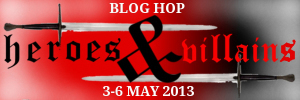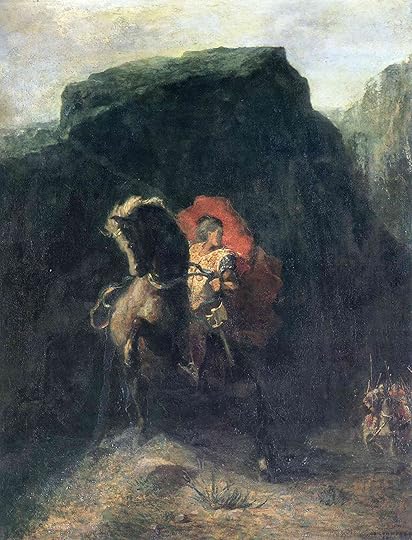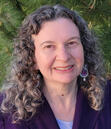The Challenge of a Medieval Man as a Hero
It’s the first Friday of the month, and usually a guest post by physics professor (and my dad) Dean Zollman highlights the history of atom theory. Today through Monday, this space will be dedicated to the Heroes and Villains blog hop. Enjoy the post about the hero of The Cross and the Dragon below and check out the giveaway and other bloggers. Then come back to Outtakes on Tuesday for another installment on the history of how we came to understand atoms.
 Any portrayal of Roland, whom I call Hruodland in The Cross and the Dragon, is going to be fictitious. The only thing we know about the historical eighth-century governor of the March of Brittany is where and when he died.
Any portrayal of Roland, whom I call Hruodland in The Cross and the Dragon, is going to be fictitious. The only thing we know about the historical eighth-century governor of the March of Brittany is where and when he died.
The Hruodland of The Cross and the Dragon is a product of my imagination, as Roland is a product of the imaginations of the people who created The Song of Roland, Orlando Inamorato, Orlando Furioso, and the legend behind the origin of Rolandsbogen.

Roland at Roncesvalles, Odilon Redon, c.1869 (public domain image via Wikipaintings)
So do I make him the hero who bravely faces overwhelming odds at the Pass of Roncevaux and stubbornly refused to call for aid? Do I make him the bridegroom grieving over the separation from his beloved?
Those questions pale compared to the greatest challenge for anyone writing historical fiction set in the Middle Ages: a hero who is true to his times yet whom modern readers will like and root for.
Unless their protagonist is an antihero, all fiction writers must balance making a character virtuous enough to be sympathetic but flawed enough to be realistic. Medieval times present other obstacles such as:
Medieval folk likely favored harsh justice for criminals, such as putting out an eye, slitting nostrils, or letting bandits, often accused of murder and rape, strangle slowly on the hangman’s noose.
Carolingian Franks were intolerant of pagan religions.
Wife-beating was a right.
Men thought women enjoyed sex and wondered if their wives would restrain themselves when they were away. A man knew whose blood his sister had, which is why his relationship with nephews and nieces was special; he had to take his wife’s word that her children were his.
Given all that, what kind of hero did I create? Hruodland has a common medieval attitude toward women and therefore doesn’t completely trust his wife, so he is prone to fits of jealousy. But he values her intelligence, compassion, and cleverness. He will stop at nothing to get her back when they are separated, and he is willing to pay any price to protect her.
This post about Hruodland and my process for creating him is part of the Heroes and Villains blog hop, May 3-6, in which almost 30 authors of fantasy, science fiction, and historical fiction discuss our heroes or our villains. And we all have giveaways.
[image error]Mine is an e-book of The Cross and the Dragon. To enter, leave a comment in this space only, with an e-mail address so that I can contact the winner. If you’d like to get an extra entry, thus increasing your odds, mention that you would like to receive an e-mail (note the singular) announcing the publication of my second book, The Ashes of Heaven’s Pillar, which features am eighth-century Continental Saxon peasant who will do anything to protect her children.
The winner will be chosen at random and announced in an update to this post after the hop. In the meantime, please check out the posts and the giveaways of the authors below.
Nyki Blatchley
Martin Bolton
Debra Brown
Adrian Chamberlin
Mike Cooley
Karin Cox
Rhiannon Douglas
Joanna Fay
Peter B Forster
Ron Fritsch
Mai Griffin
Joanne Hall
Jolea M Harrison
Tinney Sue Heath
Eleni Konstanine
K. Scott Lewis
Paula Lofting
Liz Long
Peter Lukes
Mark McClelland
M. Edward McNally
Sue Millard
Ginger Myrick
David Pilling
EM Powell
Kim Rendfeld
Terry L Smith
Tara West
Keith Yatsuhashi





